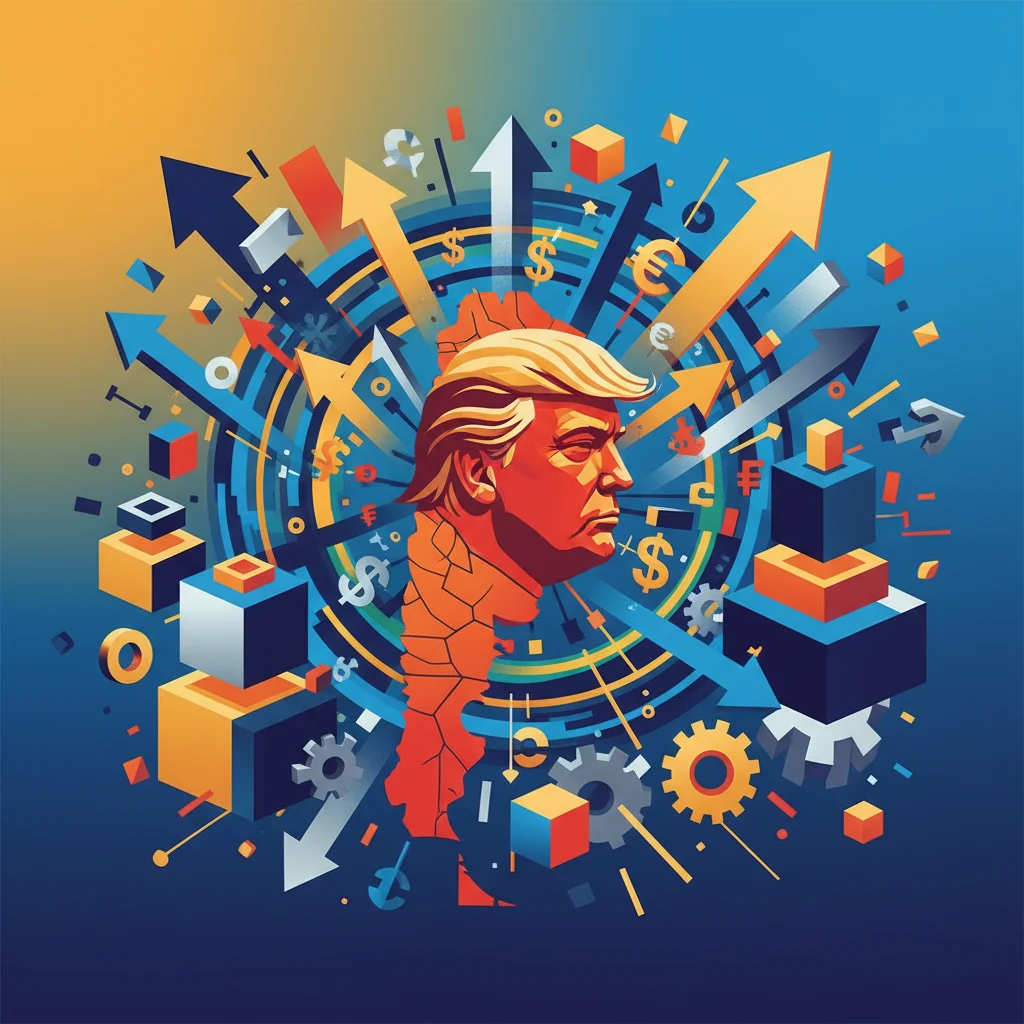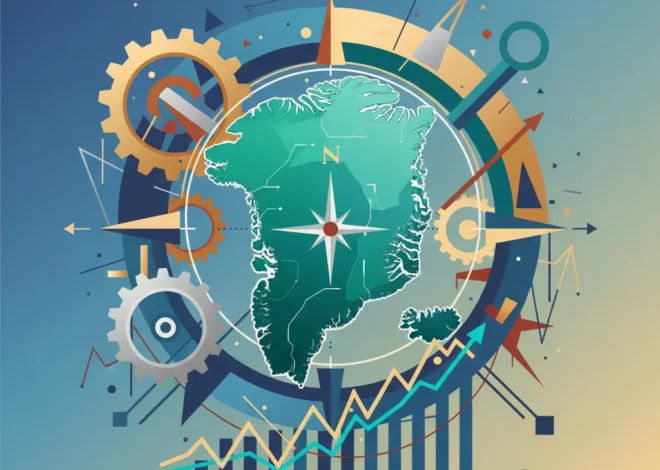
Trump’s Argentina Ultimatum: How One Election Could Reshape Global Finance and Investment
In the high-stakes world of global politics and finance, a single statement can send shockwaves through markets. Former U.S. President Donald Trump did just that with a stark warning directed at Argentina. Ahead of the country’s pivotal legislative elections, Trump declared that if the party of libertarian President Javier Milei were to lose, a future U.S. administration under his leadership would not “waste our time” helping the embattled South American nation. “We are not going to be generous,” he stated, a comment that immediately raised the stakes for investors, policymakers, and anyone with an interest in the fragile global economy.
This is far more than typical political rhetoric. It’s a clear signal that the future of U.S. foreign and economic policy could be deeply intertwined with the political fate of one of its most ardent international allies. For Argentina, a country teetering on the edge of economic transformation under Milei’s radical “shock therapy,” Trump’s words serve as both a potential lifeline and a precarious ultimatum. For global investors and finance professionals, it introduces a significant new variable into the complex equation of political risk, one that could impact everything from sovereign debt to the future of fintech in Latin America.
Argentina’s Economic Crucible: The Context for Radical Change
To understand the gravity of Trump’s statement, one must first grasp the dire economic situation that propelled Javier Milei, a self-described “anarcho-capitalist,” to power. For decades, Argentina has been trapped in a vicious cycle of fiscal mismanagement, soaring debt, and currency devaluation. Before Milei took office, the country was grappling with an annual inflation rate that had spiraled past 200%, one of the highest in the world (source: IMF). The nation’s central bank was notorious for printing money to finance government deficits, a practice that systematically destroyed the value of the peso and eviscerated the savings of its citizens.
Milei’s election was a desperate cry for something—anything—different. His platform was built on radical, free-market principles previously confined to economics textbooks:
- Dollarization: Abandoning the peso entirely in favor of the U.S. dollar to kill inflation.
- Abolishing the Central Bank: He famously called it the “worst garbage that exists on this Earth.”
- “Chainsaw Plan”: Drastic cuts to government spending, including slashing ministries, subsidies, and public works projects.
These policies represent a monumental gamble. If successful, they could stabilize the Argentine economy and create a new model for emerging markets. If they fail, they could plunge the country into even deeper social and economic chaos. This is the backdrop against which Trump’s comments must be analyzed—a high-wire act where the support, or lack thereof, from a global superpower like the United States could determine the outcome.
Decoding the “Generosity”: What U.S. Support Really Means
When Trump says the U.S. won’t be “generous,” what does that concretely mean for Argentina’s finance and banking sectors? The leverage is immense and multi-faceted:
1. The International Monetary Fund (IMF): Argentina is the IMF’s largest debtor, with an outstanding loan of over $44 billion. The United States is the IMF’s largest shareholder and holds effective veto power over major lending decisions. “Generosity” here means U.S. support for favorable restructuring terms, waivers, and the disbursement of crucial tranches of the loan. Without U.S. backing, Argentina could face a catastrophic default, locking it out of international credit markets entirely.
2. Foreign Direct Investment (FDI): A supportive U.S. administration can signal confidence to American companies, encouraging investment in key Argentine sectors like energy (Vaca Muerta shale formation), lithium, and agriculture. A hostile stance would create a chilling effect, starving the economy of the private capital it desperately needs for growth.
3. Bilateral Trade and Finance: U.S. support can manifest through favorable trade agreements, access to development finance institutions, and diplomatic backing in international forums. Losing this could isolate Argentina at a time when it needs global integration more than ever.
The following table compares the potential economic pathways for Argentina, starkly illustrating the divergence based on the success of Milei’s agenda and the nature of international support.
| Economic Area | Scenario 1: Milei’s Reforms Succeed (with U.S. Support) | Scenario 2: Political Gridlock / Milei Fails (without U.S. Support) |
|---|---|---|
| Inflation & Currency | Inflation tamed through fiscal discipline and potential dollarization. Currency stability attracts investment. | Return to hyperinflation. Continued peso devaluation and capital flight. Potential sovereign default. |
| Stock Market & Investing | Argentine assets (stocks, bonds) rerate higher as risk premium falls. Boom in foreign direct investment. | Extreme volatility in the stock market. Sovereign bonds trade at deep distress levels. Investors flee. |
| Banking & Fintech | Modernization of the banking sector. A stable environment for financial technology innovation to flourish. | Banking system remains under severe stress. Capital controls may be re-imposed, stifling fintech growth. |
| International Relations | Stronger alliance with the U.S. and Western economies. Favorable terms from the IMF and World Bank. | Increased economic isolation. Potential pivot towards alternative lenders like China on less favorable terms. |
The Unlikely Haven: Financial Technology in an Economic Storm
Amidst the macroeconomic chaos, a fascinating subplot is unfolding in the realm of financial technology. Milei’s deep distrust of central banking and his vocal support for assets like Bitcoin have positioned Argentina as a potential laboratory for fintech and blockchain innovation. This is not just theoretical; it’s a reality born of necessity.
For years, Argentinians have been using cryptocurrency as a practical tool to escape the peso’s collapse. According to a 2023 report by Chainalysis, Argentina has one of the highest rates of grassroots crypto adoption in the world (source). Citizens use stablecoins like USDT or USDC for savings and Bitcoin for larger transactions, creating a parallel digital economy. This pre-existing ecosystem provides fertile ground for Milei’s agenda. A pro-market government that champions deregulation could unleash a wave of innovation in digital payments, blockchain-based financial products, and decentralized finance (DeFi).
The success of this fintech revolution, however, is still tethered to the broader economic picture. For financial technology to move from a niche survival tool to a mainstream engine of growth, it requires a stable macroeconomic foundation, clear regulations, and international investment—all of which circle back to the success of Milei’s reforms and the stance of global powers like the U.S.
The Geopolitical Game: Beyond the U.S. Alliance
While U.S. support is critical, it is not the only piece on the board. A potential cooling of relations with a Trump-led U.S. could force a losing opposition government in Argentina to look elsewhere for support. The most likely alternative is China, which has been steadily increasing its economic footprint in Latin America for years.
China is already a major trading partner for Argentina and a significant creditor, having provided currency swap lines to bolster the central bank’s depleted reserves (source: Council on Foreign Relations). While Milei has been vocally critical of China’s communist government, a more pragmatic future administration might see Beijing’s no-strings-attached loans and infrastructure investments as an attractive alternative to the strict conditionalities of the IMF. This could lead to a significant geopolitical realignment, pulling a key South American nation further into China’s orbit—a development that would have long-term implications for regional and global power dynamics.
Conclusion: An Election with Global Consequences
Donald Trump’s warning to Argentina is a stark reminder that in our interconnected world, domestic politics and international finance are two sides of the same coin. The upcoming legislative elections are no longer just a local affair; they are a referendum on a radical economic experiment with global implications. The outcome will influence investment flows, the direction of financial technology, and the geopolitical alignment of an entire continent.
For investors and business leaders, the situation demands careful monitoring. The potential rewards of a successful Argentine turnaround are immense, but the risks of political failure and international isolation are equally profound. Trump has made the terms clear: political alignment is the price of U.S. “generosity.” Whether Argentina’s voters and political class are willing—or able—to pay that price will determine the next chapter for its economy and its place on the world stage.


